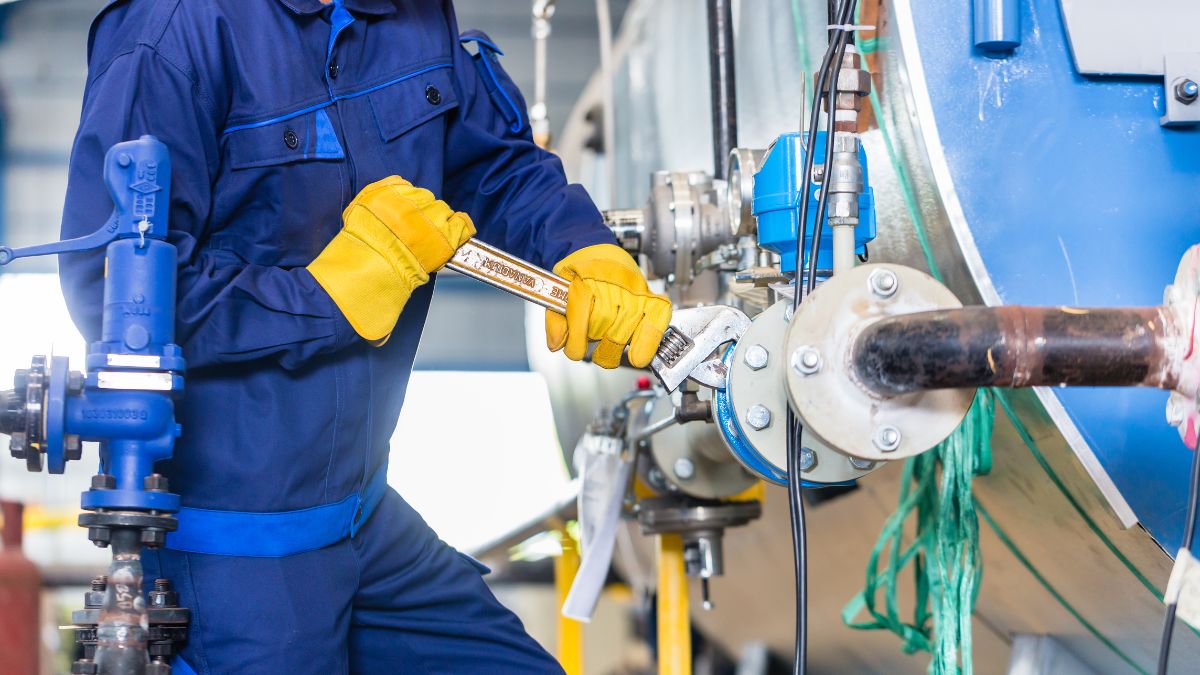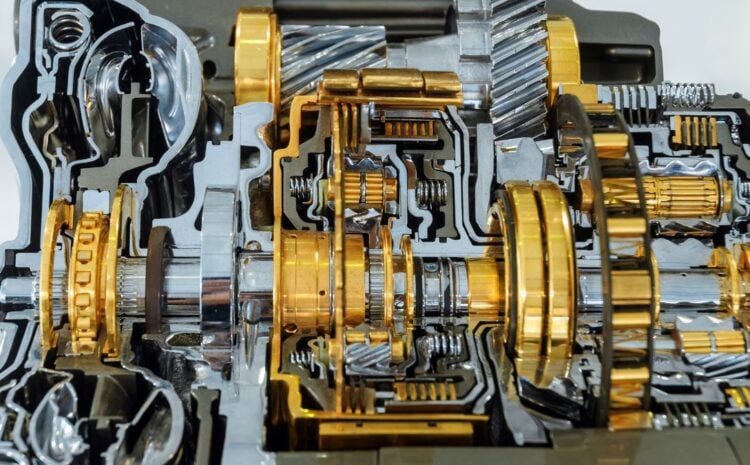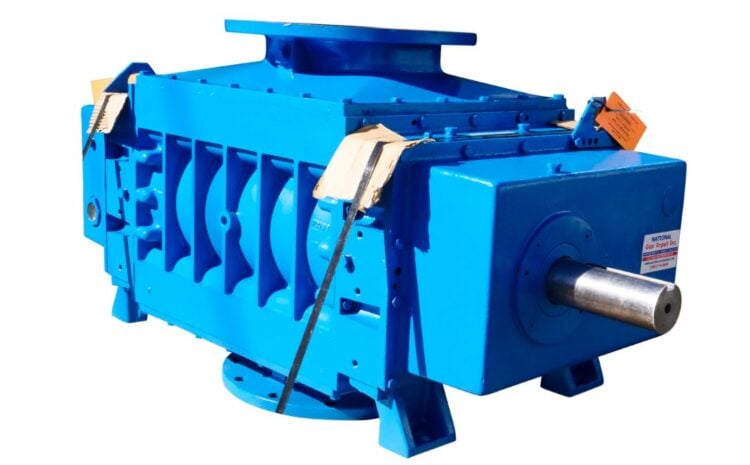Individuals in the field must thoroughly understand the complexities of an industrial extruder gearbox. These sophisticated units play pivotal roles in several industries. Proper maintenance is non-negotiable, and today we will be debunking the 5 myths of extruder gearbox maintenance.
The Role of an Industrial Extruder Gearbox
The twin-screw extruder is a prime example of machinery that relies immensely on its gearbox. These gearboxes have the pivotal jobs of power transmission, speed management, and ensuring operational continuity. Regular maintenance checks are essential to guarantee optimal functionality.
Myth 1: Once Installed, Gearboxes Are Maintenance-Free
This is one of the most dangerous myths of extruder gearbox maintenance, as it can result in severe damage, high repair costs, and long machine downtime. Waiting until your gearbox breaks down means that you are ignoring the signs of wear and tear, such as noise, vibration, overheating, or oil leakage, that indicate a problem with your gearbox or its components. These signs can worsen over time and cause irreversible damage to your gearbox or your entire extruder.
The truth is that you need to maintain your gearbox regularly and proactively, not reactively. You need to inspect, clean, lubricate, repair, or replace your gearbox or its components according to the manufacturer’s recommendations or using a condition-based monitoring system that detects signs of deterioration or malfunction. This way, you can prevent or correct problems before they become serious and extend the service life of your gearbox.
Myth 2: Any Lubricant Will Suffice
This is another common myth of industrial extruder gearbox maintenance, as it can result in poor lubrication, increased friction, wear, and heat in your gearbox. Using the wrong type of oil or grease for your gearbox lubrication can affect the viscosity, acidity, water content, metal particles, etc., of the lubricant, which can influence the health and performance of your gearbox and its components.
You need to use the right type and amount of oil or grease for your gearbox lubrication according to the manufacturer’s specifications. You also need to change the oil filter regularly to ensure cleanliness in the system. You must also frequently check the oil level, temperature, and pressure and adjust them if necessary. You also need to change the oil periodically based on your gearbox’s operating conditions or cycles.
Myth 3: Noise Is an Inherent Aspect of Gearbox Operation
It’s a common misconception that noise is simply part of the normal operation of a gearbox. However, this belief can lead to oversight of serious mechanical concerns. The reality is that while gearboxes do operate with minimal sound, distinct noises such as grinding, knocking, or screeching are indicators of complications within the system.
Unusual sounds can occur due to various issues. These issues include misalignment, bearing failure, and insufficient lubrication. All of these problems can lead to significant damage to the gearbox. Misalignment can cause uneven wear and the early breakdown of parts. Bearing failure, which can be heard as a high-pitched noise, may mean overloading or bad maintenance.
Additionally, insufficient lubrication might cause a harsh grinding noise, signaling increased friction and potential wear on components. If these issues are not promptly identified and rectified, they can escalate into costly damages and system failures, necessitating extensive repairs or replacements.
Therefore, it’s crucial for maintenance personnel to monitor and analyze gearbox noise regularly. Utilizing sound detection tools and vibration analysis techniques can facilitate early detection of these irregularities, allowing for timely intervention. Addressing noise-related concerns at an early stage not only enhances the longevity and reliability of the gearbox but also significantly contributes to maintaining operational efficiency and safety in industrial settings.
Myth 4: If It Isn’t Malfunctioning, No Intervention Is Needed
Many believe that a smoothly running gearbox doesn’t require maintenance, akin to thinking no doctor’s visit is needed in the absence of symptoms. However, this view can lead to neglecting essential preventative care.
Much like regular health check-ups detect unseen conditions, scheduled gearbox inspections identify early signs of wear and tear or misalignments. Although sturdy, components like gears and thrust bearings can undergo subtle changes over time, potentially affecting performance.
Consistent preventative maintenance ensures the gearbox operates efficiently, prolongs its lifespan, reduces operational costs, and minimizes the risk of sudden breakdowns. In short, even a seemingly flawless gearbox benefits immensely from regular checks, maintaining its longevity and efficiency and reducing unexpected repair needs.
Myth 5: DIY Maintenance Equals Professional Service
There is no shortage of do-it-yourself guides and tutorials in this digital age. However, regarding gearbox maintenance, the stakes are high, and the intricacies are many. While minor adjustments might seem straightforward, the risk of overlooking vital details or misinterpreting symptoms is real.
Gearboxes, with their intricate components and specific operational requirements, aren’t the best candidates for DIY endeavors. Professional technicians possess in-depth knowledge, specialized tools, and hands-on experience, enabling them to accurately diagnose, adjust, and repair these units.
By seeking expert services for gearbox maintenance, you ensure the machinery retains its optimal functionality and durability. It’s a strategic move that safeguards the gearbox’s performance and averts potential operational hazards and costly downtime.
The Truth About Gearbox Maintenance
In essence, consistent care and attention are mandatory for gearboxes. By understanding and addressing these myths, one can ensure they operate efficiently, ensuring longevity and cost-effectiveness.
Tips for Proper Gearbox Maintenance
- Schedule routine inspections, preferably with specialists in gearbox repair.
- Stay vigilant for any operational deviations or anomalies.
- Prioritize quality when opting for lubricants or spare parts.
Conclusion
Gearboxes are pivotal components in the vast landscape of industrial machinery. Their optimal performance and maintenance are indispensable for the smooth running of many processes. However, like all machinery, they can encounter challenges. During such times, it’s comforting to know that there are expert services tailored specifically for these complex units. Extruder Gearbox Repair stands out as a one-stop shop for all repair and remanufacturing needs, catering to a diverse range of gearboxes. Whenever you’re in doubt or facing difficulties, remember that Extruder Gearbox Repair is just a call away. We provide specialized and trustworthy gearbox repair services.



